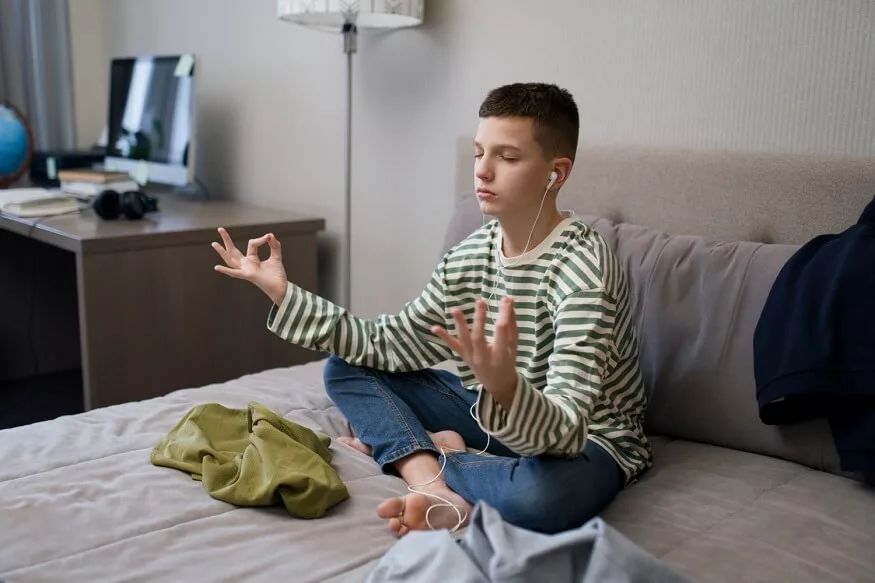In the world of raising kids, self-control is like that reliable friend who shows up in all aspects of a child’s life, making things a bit smoother. As parents, teachers, and caregivers, our gig involves way more than just pushing for top grades. We’re also the backstage crew working on essential life skills for these little humans. And hey, one skill that’s like the superhero of the bunch? Self-control. It’s the magic wand that helps kids handle tricky situations, deal with feelings, and make smart choices. So, stick around as we dig into why self-control is a big deal for kids and swap notes on how to help them grow this superpower.
The Significance of Self-Control
Self-control, often synonymous with discipline, goes beyond simple obedience. It is the capacity to manage impulses, resist temptations, and exhibit restraint in the face of adversity. This skill is not only essential for personal development but also lays the foundation for success in various life domains.
1. Academic Achievement
The classroom serves as a microcosm of life, and self-control plays a pivotal role in academic success. Children with well-developed self-control are better equipped to stay focused during lessons, resist distractions, and complete assignments promptly. These students tend to excel in examinations and exhibit a greater enthusiasm for learning.
2. Emotional Regulation
Children experience a kaleidoscope of emotions as they navigate the complexities of growing up. Self-control empowers them to manage these emotions effectively. When children can regulate their feelings, they are better equipped to handle stress, disappointment, and interpersonal conflicts. This emotional resilience contributes significantly to their overall well-being.
3. Social Competence
In the intricate dance of social interactions, self-control emerges as a graceful partner. Children who can regulate their impulses are more likely to build positive relationships with peers and authority figures. They learn the art of compromise, empathy, and effective communication, which are essential skills for successful social integration.
Also Read: Social Anxiety in Kids: Meaning and How to deal with it
How to Improve Self-Control:
Improving self-control is a gradual and ongoing process that involves both self-awareness and the development of specific skills. Here are some strategies that can be applied to enhance self-control in children:
- Set Clear Expectations:
- Teach Emotional Regulation:
- Encourage Goal Setting:
- Model Self-Control:
- Use Positive Reinforcement:
- Self-Control for Students:
- Create a Structured Environment:
- Teach Time Management Skills:
- Promote Mindfulness Practices:
- Encourage Breaks and Physical Activity:
- Self-Control for Preschoolers:
- Establish Routines:
- Use Visual Aids:
- Teach Simple Decision-Making:
- Engage in Imaginative Play:
- Create a Supportive Environment:
- Provide Consistent Discipline:
- Celebrate Progress:
- Encourage Problem-Solving:
Communicate expectations regarding behaviour and decision-making. When children understand the standards set for them, they are more likely to exhibit self-control to meet those expectations.
Help children identify and express their emotions healthily. By understanding and managing their emotions, children are better equipped to handle challenging situations without succumbing to impulsive reactions.
Introduce the concept of goal setting and break down larger goals into smaller, achievable tasks. This helps children develop patience, perseverance, and the ability to delay gratification – all crucial components of self-control.
Children learn by observation, and parents, teachers, and caregivers serve as role models. Demonstrating self-control in your own actions and decision-making provides a powerful example for children to emulate.
Reinforce positive behaviour by praising and rewarding instances of self-control. Positive reinforcement helps children associate self-control with positive outcomes, making them more likely to exhibit it in the future.
For students navigating the challenges of academic life, self-control is a valuable asset that can significantly impact their performance and well-being. Here are tailored strategies for fostering self-control in students:
Establishing a structured and organised learning environment helps students stay focused and minimises distractions. Clear routines and designated study spaces contribute to a conducive atmosphere for self-control.
Equip students with effective time management skills, encouraging them to plan their study sessions and allocate time for breaks. Learning to manage time wisely enhances productivity and reduces the likelihood of procrastination.
Introduce mindfulness practices, such as meditation or deep breathing exercises, to help students develop self-awareness and the ability to stay calm under pressure. Mindfulness contributes to better decision-making and emotional regulation.
Recognise the importance of breaks and physical activity in maintaining focus and reducing stress. Regular breaks and physical exercise contribute to improved concentration and mental resilience.
For preschoolers, the emphasis is on introducing foundational concepts and skills that lay the groundwork for future self-control. Here are strategies tailored for preschool-aged children:
Preschoolers thrive on routine and predictability. Establishing consistent daily routines provides a sense of security and helps preschoolers understand expectations, contributing to the development of self-control.
Employ visual aids, such as charts or timers, to help preschoolers grasp the concept of time and transitions. Visual cues assist in conveying expectations and facilitate smoother transitions between activities.
Introduce simple decision-making opportunities, allowing preschoolers to make choices within a controlled environment. This empowers them to develop decision-making skills and exercise a degree of control over their actions.
Incorporate imaginative play into daily activities, encouraging preschoolers to express themselves creatively. Engaging in imaginative play fosters the development of impulse control and emotional expression.
Also Read: 10 Ways to Improve Social Skills in Toddlers
How to Build Self-Control in Children
Building self-control in children is a holistic process that involves a combination of education, practice, and positive reinforcement. Here are overarching strategies applicable to children of all ages:
Cultivate an environment that nurtures self-control by promoting open communication, understanding, and empathy. A supportive environment encourages children to express themselves and seek guidance when faced with challenges.
Consistent and fair discipline is essential for the development of self-control. Communicate consequences for specific behaviours, ensuring that children understand the connection between their actions and the resulting outcomes.
Recognise and celebrate the progress children make in developing self-control. Acknowledging their efforts and achievements reinforces positive behaviour and motivates them to continue practising self-control.
Teach children problem-solving skills, empowering them to find constructive solutions to challenges. Problem-solving fosters critical thinking and helps children approach situations with a thoughtful and measured mindset.
Also Read: 12 Social-Emotional Learning Activities For Students
As one of the leading schools in the country, EuroSchool’s role is not only to impart knowledge but also to foster the development of essential life skills. In doing so, we contribute to shaping future leaders who can positively impact their communities and the world at large.











